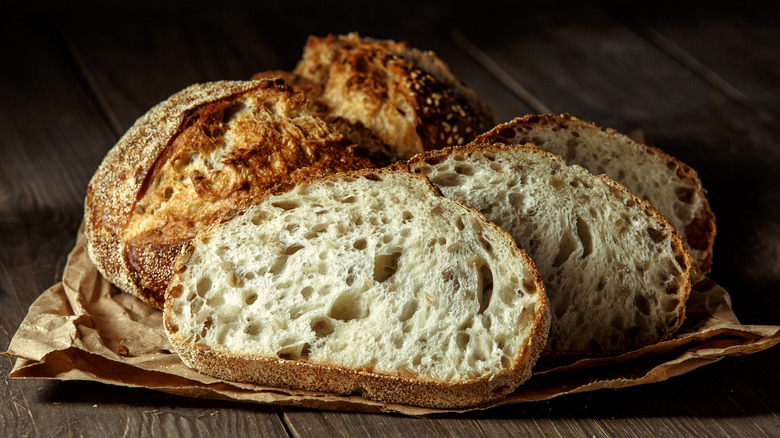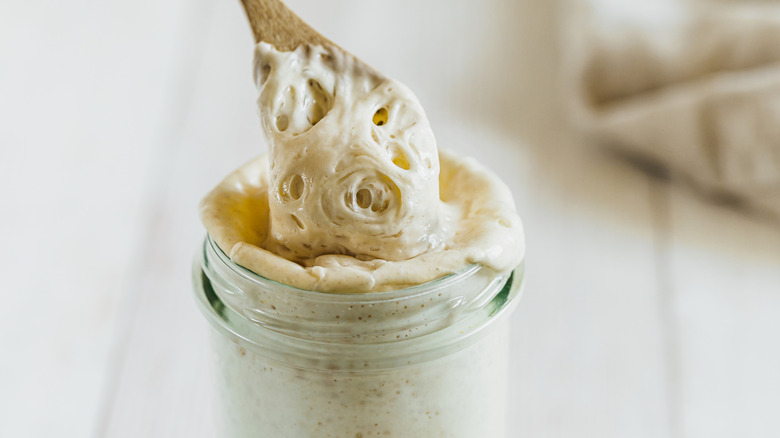Why Sourdough Bread Might Not Ruin Your Gluten-Free Diet
Ah, sourdough. The most versatile of all breads. Slice and eat it in a sandwich. Soak it in egg and cinnamon and turn it into French toast. Mold it into a pizza dough, or make yourself some starter and bake it yourself. The possibilities of sourdough simply cannot be outnumbered. Because of its many facets, this most perfect bread might just be the most beloved of all of them.
Who can deny their ears perking up when a server asks if you want your sandwich on wheat, rye, or sourdough, or your mouth watering when you see sourdough pancakes on a menu? For most of us, the opportunity to get our hands on some of this bread is a welcome experience, and something to truly look forward to. But for those that are gluten-free, bread is not always an option.
Whether you have celiac disease, a gluten intolerance, or simply want to cut back on carbs, you might think you need to cut all bread out of your diet because of its heavy gluten presence. But thankfully that might not be the case with sourdough.
Sourdough could actually help your body adapt to gluten
Even if you are gluten-free, there are bread alternatives you can turn to when you're craving a slice or something bread-adjacent on which to spread your peanut butter and jelly. Gluten-free breads, including loaves made with potato or tapioca flour, have increased their presence in grocery stores over the years. Cloud bread, which is made of egg whites and cream of tartar, had a moment for a while. But when it comes to real, soft, doughy bread, the reality is, sourdough may be okay too.
According to Eating Well, sourdough bread might not have to be off-limits for gluten-free eaters. The number one thing that separates sourdough from all other types of bread is the way its made — by fermenting flour and water, rather than adding yeast. This not only makes sourdough bread high in vitamin B, which may help keep your energy high and your metabolism alert, but it also gives the bread a ton of prebiotic and probiotic properties, which keep your gut healthy.
Even better, one study as reported on by Eating Well found that regularly eating sourdough bread actually helps your body digest gluten more easily. That's right, the more sourdough you eat, the more your body could learn to love gluten! Plus, the sourdough fermentation process might actually counteract any negative reactions our body might otherwise have with gluten.
Of course, more research is needed to make any definitive decisions about the relationship. But if you're a bread-lover who craves a grilled cheese every now and again, you may want to ask your doctor if sourdough bread is safe for you to eat.

